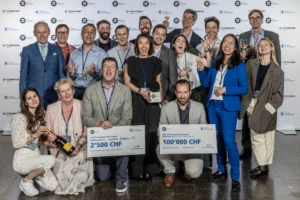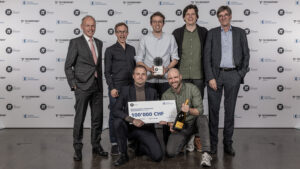
Nanoflex Robotics Wins 2025 ZKB Pionierpreis Technopark
Nanoflex Robotics AG has secured the prestigious 2025 ZKB Pionierpreis Technopark, a leading Swiss deeptech innovation award, for its cutting-edge telerobotic technology designed to revolutionize endovascular interventions.

